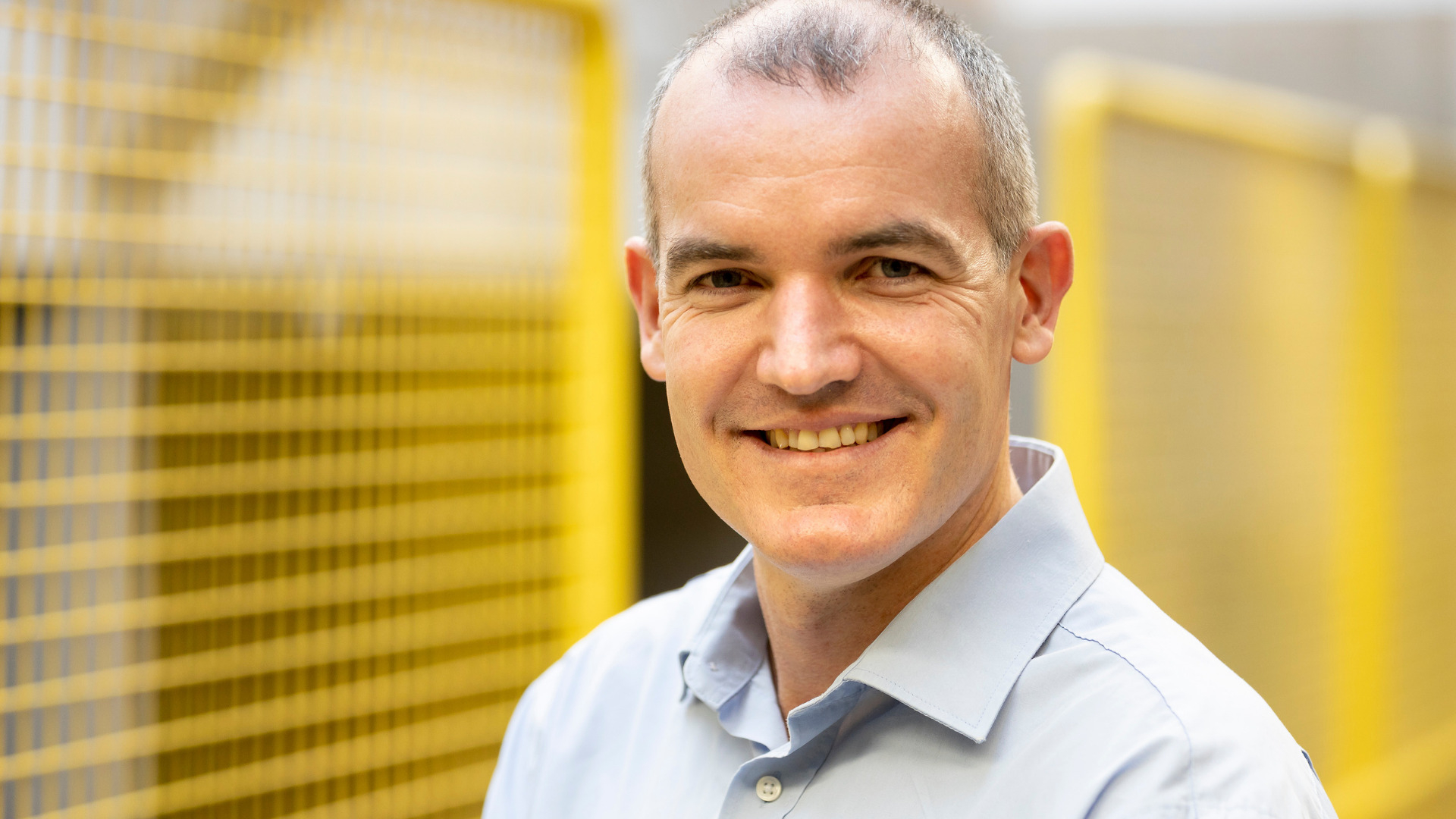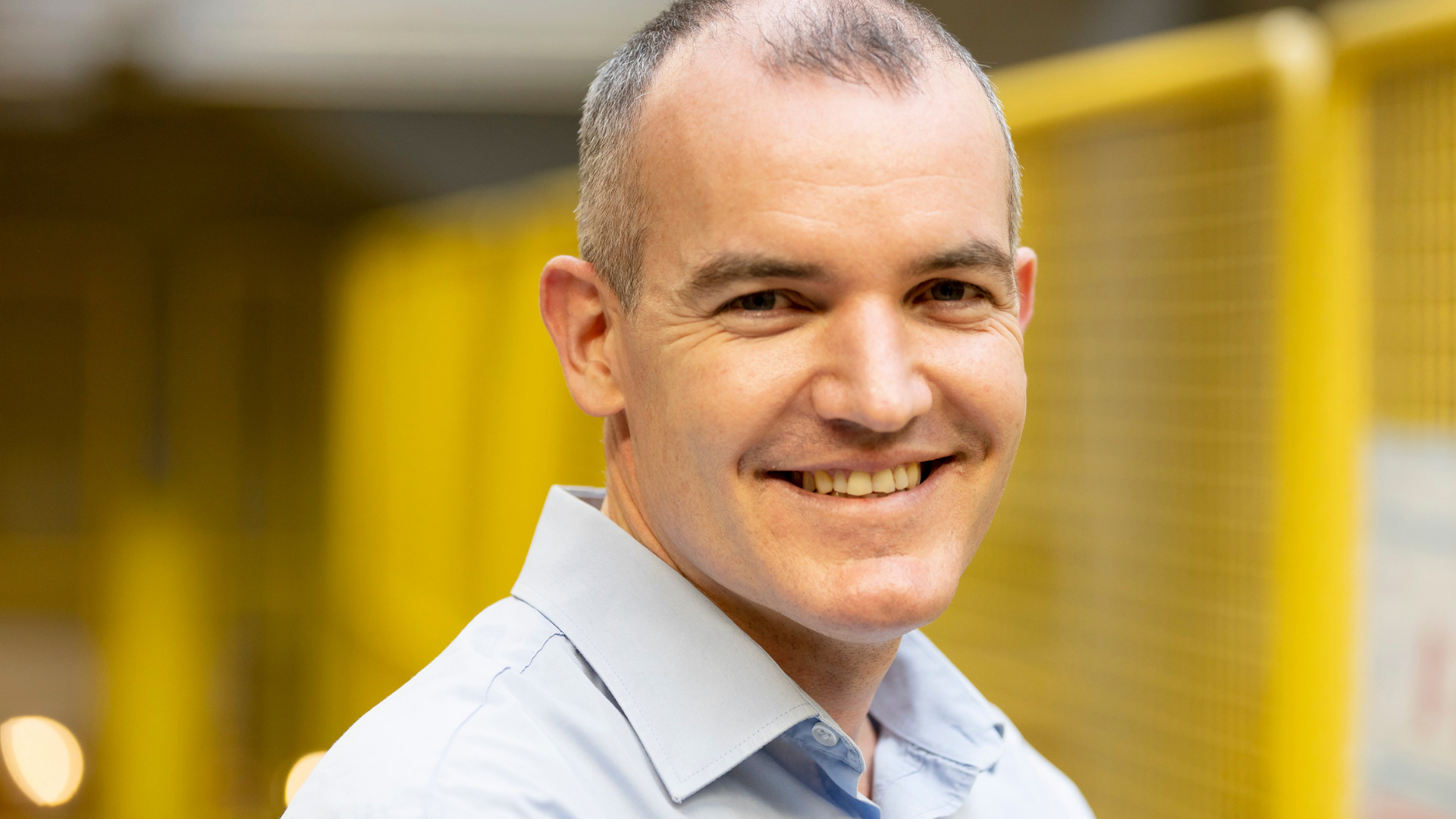When New Zealander Professor Regan Watts from the Faculty of Design Sciences moved to Antwerp five years ago, the support of his colleague Professor Koenraad Keignaert and his wife Katrien proved invaluable. ‘As a newcomer, you have a million questions and you want good answers to them’, Regan says while thinking back.
When Regan was offered a position as assistant professor at UAntwerp, his children were his first concern. ‘Like perhaps all parents, my wife and I put their interests first. For those little guys, they were two and four at the time, it has to be right from the start’, he says.
Fortunately, he had just under a year to prepare. Six months before he started at our university, he already came to Antwerp for a second interview. That day he met Koenraad. At the end of January 2017, he permanently settled in Antwerp. A few weeks later, his wife and children would travel after him. In that short time, there was a lot to arrange: a permanent home, a school for the children, a bank account, insurance policies, etc.
Catch-22
At times, Regan encountered obstacles that he describes as catch-22s. ‘In Belgium you cannot open a bank account without a fixed address, but you cannot rent a house without a bank account’, he laughs. ‘Fortunately, I could count on help from the university at those times. Especially on Erika Leunens from the International Staff Office who took a lot of work off my hands during that initial period, even before I left.’
‘As a newcomer, you have a million questions to which you want the best possible answers. If you then get help from people who have experienced it all themselves, that is a great added value. They are most aware of what you need.’
Regan Watts
Koenraad and his wife Katrien also helped wherever they could. ‘I found it especially important to find a good school for my children’, says Regan. ‘It just so happens that Katrien is on the parent council of Sint-Lievenscollege in Antwerp and she helped to enrol my son there. Later, my daughter could also enrol there.’
Would he describe those first weeks as a difficult period? Regan weighs his words carefully. ‘I knew it would be quite a challenge, so I prepared myself as best as I could. But even then I had my hands full. Going out in the evening or visiting a museum were out of the question: I was busy arranging things for my family. For many things, Koenraad and Katrien’s advice was worth its weight in gold. They recommended me a good general practitioner and dentist, things you can’t find on the internet.’
Friends and neighbours
The warm welcome Koenraad and his wife gave him was just as important. The New Zealander happily looks back on the cosy evenings at the couple’s home. They became friends and in time even neighbours, as Regan and his family found a suitable home opposite his colleague’s. ‘In the meantime we have moved to Linkeroever, but the bond has remained’, says Regan.

Regan considers it an excellent initiative that newcomers can be assigned a personal international guide. ‘As a newcomer, you have a million questions to which you want the best possible answers. If you then get help from people who have experienced it all themselves, that is a great added value. They are most aware of what you need’, he says.
He does not ponder long when asked what advice he would give to international colleagues arriving in Antwerp for the first time. ‘Don’t be afraid to go to International Staff Office if you have questions. And take a language course as soon as possible, since all administration and official websites are in Dutch. Even after that effort, you still won’t understand a word of what young researchers say amongst themselves in dialect, but that’s just a side effect (laughs).’
Would you like to help an international newcomer at UAntwerp? Then be sure to sign up.


